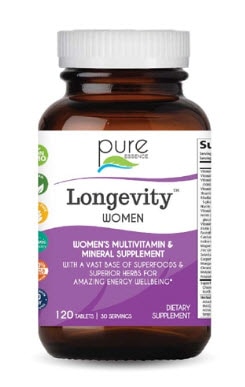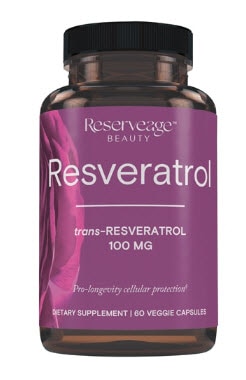Have you heard of the Blue Zones Project? This international program is based on research suggesting that our genes determine only about 20 percent of our health outcomes, while around 80 percent are influenced by where, and how, we live. To better understand the impact of lifestyle and environment, Dan Buettner, Blue Zones® Project founder, set out to “reverse engineer longevity.”
In 2004, Buettner collaborated with National Geographic, the National Institute on Aging, and accomplished longevity researchers to identify specific areas around the world where people lived exceptionally long, healthy lives. As Buettner identified these “longevity hotspots,” he highlighted them on maps with concentric blue circles, dubbing them Blue Zones. These include:
- Okinawa, Japan
- Sardinia, Italy
- Nicoya, Costa Rica
- Ikaria, Greece
- Loma Linda, California
Blue Zones® is now a trademark of Blue Zones, LLC, and Dan Buettner’s results are explained in his books The Blue Zones and The Blue Zones Solution. So, what are the cultural habits associated with these hamlets of healthy longevity? Buettner and his team found that Blue Zones areas share nine specific lifestyle habits.
Blue Zones Diet & Lifestyle Practices
Instead of “exercising,” just move
Only 23 percent of American adults exercise daily, according to the Centers for Disease Control’s National Center for Health Statistics. By comparison, Blue Zones inhabitants stay active naturally, integrating movement into their daily lives. They walk daily, rely less on modern conveniences, hike or cycle to their destinations, tend to gardens, children and animals, and otherwise merge healthy activity with necessary daily life functions.
Follow your bliss
The Okinawans call it “ikigai,” the Nicoyans call “plan de vida,” and the Sardinians refer to as “senso dello scopo della vita.” In any language, having a clear sense of purpose may add up to seven additional healthy years. You brain could benefit as well, according to a 2021 study in the journal Trends in Cognitive Science, which found that individuals with a strong feeling of purpose, based on their essential values, passions and personal gifts, maintain better cognitive function over time.
Disengage from stress
No one can avoid stress entirely, but when it feels unrelenting, it can take a toll on your body in the form of chronic inflammation, a condition associated with every major age-related disease. While certainly not immune to stress, Blue Zones inhabitants appear to cope with it well by maintaining healthy decompression routines, also referred to as “downshifting.” These may include:
- Taking time to prepare whole food meals
- Dining in a relaxed manner with loved ones daily
- Walking and otherwise staying active daily
- Spending time caring for children and/or animals
- Appreciating and incorporating nature into one’s daily experience
- Expressing daily gratitude
- Cultivating community in various ways
Practice “Hara hachi bu”
The 80 Percent Rule, also known as “Hara hachi bu,” derives from a 2,500-year-old Confucian mantra suggesting people stop eating when they are just 80 percent full, which we now know has scientifically proven benefits. This wise practice may help you to:
- Maintain a healthy body weight
- Discourage visceral fat around vital organs
- Minimize risk of obesity
- Support healthy digestion
- Normalize gut wellness
Embrace a plant-centric menu
The daily menu of Blue Zones inhabitants is about 95 percent vegetables, fruits, grains, beans, legumes, nuts and seeds. If animal protein is consumed at all─mainly fish and poultry─it tends to be used more as a condiment than a main course. Along with minimizing meat, these cultural menus feature little dairy, and naturally exclude foods high in refined white flour and sugar, sweetened beverages, packaged convenience items and other industrially processed fare.
Sip & smile
In Blue Zone regions, alcohol, especially resveratrol-rich red wine, is consumed in moderation, typically in social settings with meals. This may indeed factor into the healthy longevity enjoyed by these communities. The “90-plus” study, conducted by researchers at the University of California, Irvine on participants ages 90 and older, found that people who drink moderate amounts of alcohol, 1-2 glasses per day, lived demonstrably longer than those who didn’t.
Connect positively with others
Blue Zone cultures naturally emphasize community involvement, in which individuals interact constructively with others locally. This may include church settings, but religion is by no means required to reap the benefits of communing with your fellow humans. Any reason to gather and enjoy time with like-minded individuals, sharing ideas and cultivating common interests and ideas, is positively life extending.
Prioritize love
Cultures in which Blue Zones centenarians thrive are characterized by strong family ties. This often means caring for aging parents and grandparents at home, which, not incidentally, appears to lower disease and mortality rates for children in the family too. Additionally, Blue Zones inhabitants typically commit to a life partner, which may add up to 3 years of life expectancy. These communities also notably invest in their children with time, attention and love.
Nourish your tribe
The world’s longest-lived people tend to be born into social circles in which they characteristically form long-lasting, trusting relationships. Inclusion in positive social networks, where we feel accepted and appreciated for who we are, can help us live longer, healthier lives. As Buettner has pointed out, the world’s longest-lived people “curate” social circles around themselves that support wellness-building behaviors.
Given the tremendous significance of our daily lifestyle choices, which again, far outweigh genetic influences, we can all benefit from these Blue Zone Project findings. Cheers to being healthy at 100!






